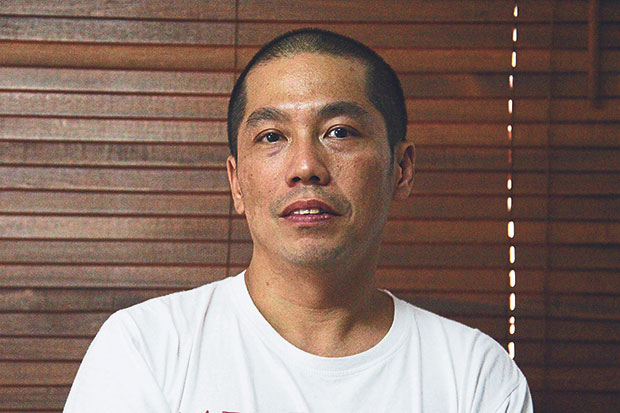KUALA LUMPUR, Oct 18 — Film-maker Ho Yuhang is a familiar face to many, having not only made, but also appeared in, many advertisements that have become nostalgia nuggets for millennials.
Many would argue that he was also part of what some have labelled the “Malaysian New Wave” scene in the Noughties, achieving critical acclaim since his debut feature-length film Min in 2003.
Two weeks ago, he bagged the inaugural FT/OppenheimerFunds Emerging Voices award for his short film Trespassed, and he is currently in the pre-production stage for a feature-length action film he plans on calling Mrs K.
Mrs K will be his first feature-length work since At the End of Daybreak which he released in 2009 and saw among others, a NETPAC award win at that year’s Locarno International Film Festival and a nomination for the Asian film award at the 2009 Tokyo International Film Festival.
Malay Mail Online caught up with Ho in between location scouting for Mrs K and he talked about how he got into films, his creative process, and where he positions himself in the local film-making scene.
In his own words:
I had a lot of great cinema-going experience when growing up, and I also watched a lot of TV. Now I don’t watch TV anymore. When I was small, TV had silent film sequences of Harold Lloyd, lots of Looney Tunes, The Twilight Zone, Westerns, black and white films, and even late night horrors and classical concert programmes. I also went to the cinema a lot. They weren’t in the malls. They were big halls and going to the cinema was a family occasion. My parents brought me to see many great and terrible films, and in high school I started going with friends or sometimes simply just by myself.
I liked going to the cinema alone. It’s a kind of private ritual for me. They were mostly Hong Kong and American films. There were a lot of trash and there were some memorable ones.
I didn’t decide that I should go into film-making. It’s more like I decided that I should go check out what it’s like and if it didn’t suit me, I would find something else to do. I studied in America and worked there for two years. When I returned I then decided to not work anymore as an engineer.
It was an accident. I didn’t want to live my whole life as an engineer so I quit my job and gambled in something else. I went to work in the TV commercial industry to learn some technical stuff in film-making. Then I figured I should learn to write a little. I was really just looking around for some way out because I knew I loved films more than commercials. I could have failed miserably. Now I have failed less miserably so it’s not so bad.
I do not fit very well in the industry, I guess. I see so many others wanting to conform to a kind of industry standard whereas I know the so-called “standard” quite well and I’m moving away from it. These days I see short films being done on a bigger scale, but before this I was just shooting with less than five people and I’ve even done it just by myself without actors, something probably difficult for most to imagine.
My short films are mostly in black and white. It’s a more naked approach and it’s difficult to hide anything with black and white. I like the directness of it. I started doing it a while back because I hated the colour of those digital cameras so I switched the colour off. Then I thought I could work with the most basic light and darkness thing, and I’ve been doing that ever since.
I have no specific process. Some took a long time to write and some very quickly, I worked with the sensations I got and if it didn’t last for more than a few days, then it’s a no-go.
[For Trespassed], I had this feeling of a sick child and some nightmarish thoughts, so started scribbling everything on paper. Finished it in two hours. Then I showed it to my actress friend Yeo Yann Yann to get her to be in it. She read it and laughed, and asked if I was on drugs when I wrote it.
I’ve got some great help from overseas when it comes to shooting films. I was lucky. Since I had help from overseas, I wasn’t really too hardworking in sourcing locally. There are local fundings obviously. I should tap into them more often. I’ve spoken to some and realised they didn’t really understand what I wanted to do.
FINAS is very helpful today, unlike before. It was very difficult to get them to do anything before. I’ve had overseas producers and distributors and programmers who wanted to do research and special Malaysian focus and FINAS wasn’t responsive at all. Things seem to have changed lately so I hope it continues that way.



















